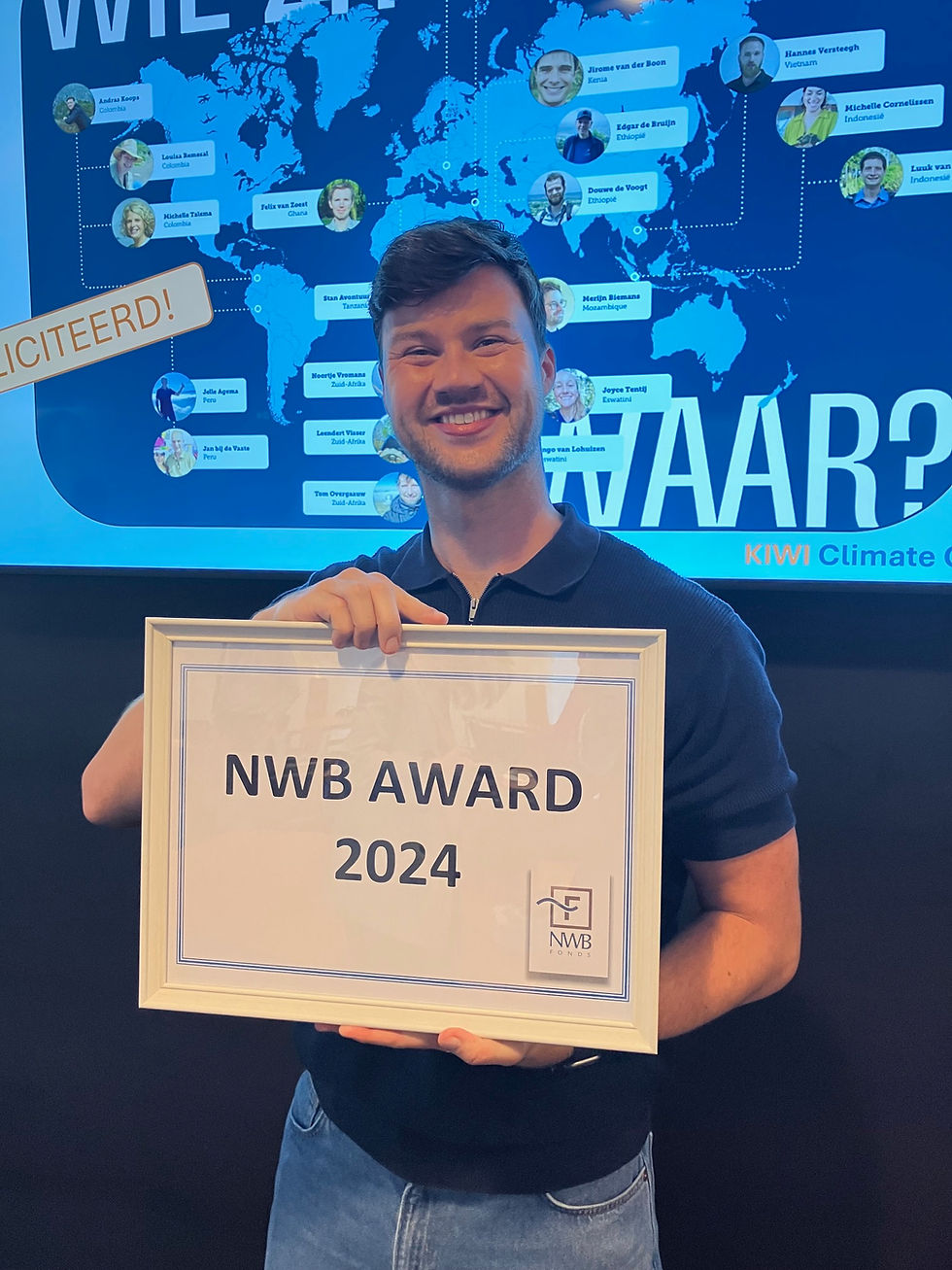Knowledge development in Mozambique
- mwierda6
- Mar 28, 2023
- 2 min read

Dutch water authorities are collaborating with authorities in Mozambique to improve water management. Wetterskip Fryslân is the main driver of this collaboration. With co-financing from the NWB Fund, work on capacity development has been ongoing since 2020. This project was recently concluded, and the activities have been integrated into the Blue Deal partnership with Mozambique.
Capacity Development
Strengthening personnel and organizational capacity is a key aspect of the collaboration with Mozambique: the three regional water management organizations (ARAs), the National Water Directorate (DNGRH), and the Sanitation & Drainage Department of the city of Beira. In this context, capacity development means:
Development of individual knowledge and competencies among employees in an organization, and
Improvement of work processes and mechanisms to share knowledge and experience within the water sector.

With this goal in mind, the knowledge building and exchange network has been established. This includes various activities such as training young employees by experienced colleagues, developing blended learning modules (a mix of physical and digital learning), setting up expert groups, and organizing events where knowledge and experience are shared.
Knowledge transfer from senior to junior colleagues
Senior experts from the ARAs (Regional Water Authorities) are relieved from their usual tasks to train younger colleagues. To fill the gap they leave behind in the organization, additional young experts are hired, funded by the project. These are temporary contracts, with the intention that these employees can eventually transition to a permanent position within the ARAs. By the time that happens, the young expert will have developed. This flow from temporary to permanent contracts, combined with training and knowledge transfer, is a key building block in sustainably developing and securing capacity within the relevant organizations.
Blended learning

During the COVID-19 crisis, physical meetings were limited, so a pilot was launched with digital learning activities via Zoom, Skype, and Teams as an alternative to traditional education. The goal was (and is) to develop modules around themes such as water quality, sanitation, water distribution, water safety/flood risk, and general management. A module consists of a didactic plan with a combination of the following elements:
Physical, classroom-based lessons
Digital training and webinars
Video lessons (short explanation by the instructor followed by a Q&A session)
E-learning modules (time- and location-independent).
In 2020, Stichting Wateropleidingen and Skilled were brought in to assist with this learning journey. They helped set up the first blended learning module for the theme of water quality. New modules will be developed in the coming years as part of the Blue Deal partnership.



